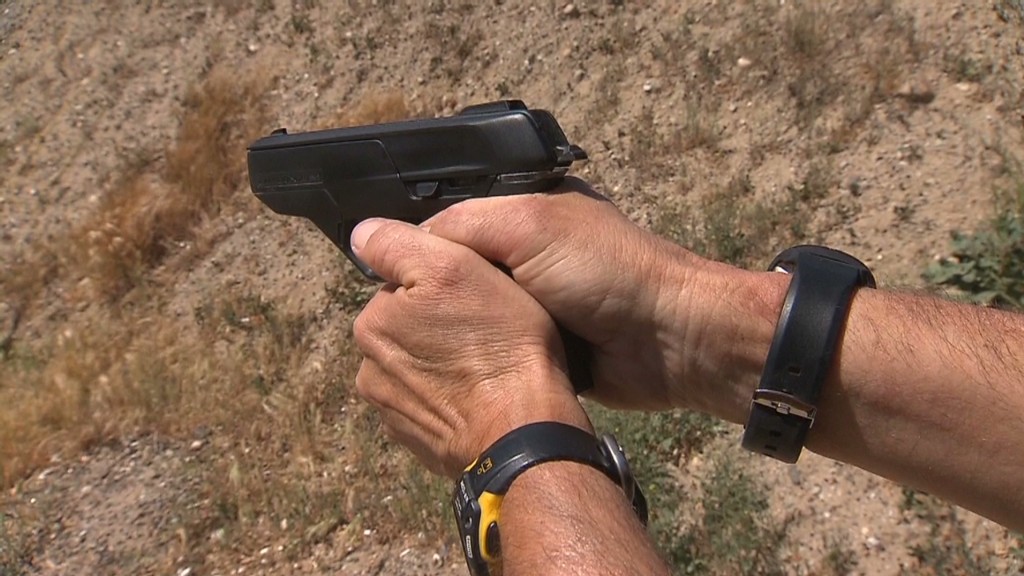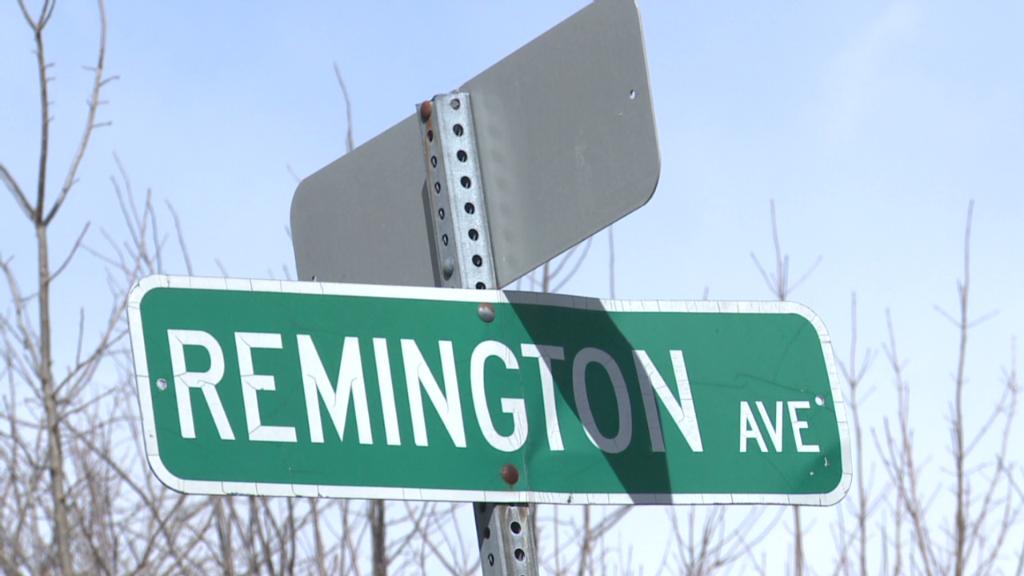
A proposal to expand background checks failed in Washington, but several entrepreneurs say they have a different answer to curbing gun violence.
They're using technology to create guns that only fire in the right hands. These so-called smart guns can recognize a watch, a ring or even just a grip.
For more than a decade, researchers at the New Jersey Institute of Technology have been working on a grip-recognizing gun similar to the one James Bond uses in "Skyfall."
Sensors on the grip -- similar to the touchpad on a laptop -- measure the pressure applied and the size and shape of the hand holding the gun.
"If a child tries to grab the gun, their hand geometry is actually going to be smaller," said NJIT Associate Professor Michael Recce. "So they're not going to touch the sensors, and they're not going to be able to fire the gun."
Related: Remington jobs rule the rust belt
According to the Bureau of Justice Statistics, about 232,000 guns are stolen every year. Recce says these criminals would not be able to use a grip-recognizing gun.
Another company, Armatix, uses radio frequency technology in its weapons, which unlock with a watch and a PIN. If someone who isn't wearing the watch grabs the gun, it immediately deactivates.
"Anybody who picks up the handgun, whether it's a child or it's actively stolen, they can't activate the watch," said Belinda Padilla, president and CEO of Armatix USA.
Armatix already sells these personalized guns in Europe and Asia.
Triggersmart, founded by Irish entrepreneur Robert McNamara, also uses radio frequency technology to enable -- and disable -- guns. The chip that activates the gun can be placed in a ring, bracelet or potentially even embedded in the owner's hand.
Personalized weapons makers say their products are effective and inexpensive. But even so, none are available in the United States, due to lack of demand from gun makers and owners.
Related: Guns and ammo sales spark jobs boom
With guns in the national spotlight, that could soon change. These entrepreneurs have discussed their technology with the attorney general, and Obama touted smart guns in his 23-point plan to reduce gun violence in the wake of the Newtown shooting.
Several other gun control measures -- including background checks and an assault weapon ban -- recently failed, but smart guns are still on the table. Rep. John Tierney, a Massachusetts Democrat, plans to introduce a House bill in the next few weeks requiring that all guns include personalization technology within two years.
The smart-gun makers say their products could have prevented the tragedy in Newtown, but critics are doubtful.
"The firearms were accessible to Adam Lanza. They should not have been," said Lawrence Keane, senior vice president and general counsel of the National Shooting Sports Foundation. "If [Mrs. Lanza] had one that had this sort of authorized user recognition onboard the firearm, presumably he would've had access to that."
Keane isn't completely against personalized weapons, but he says the technology isn't reliable enough yet and could even make guns more dangerous.
"It can actually encourage people to leave loaded firearms accessible, relying upon the technology which can fail at the most inopportune time," he said.

The NRA has previously expressed concerns about personalized weapons as well. They did not respond to requests for comment for this story.
Personalized gunmakers agree that this technology won't stop all gun violence, but they say it could be an important step.
"Personalized handguns and personalized technology will save lives of many people and children," said Padilla.

